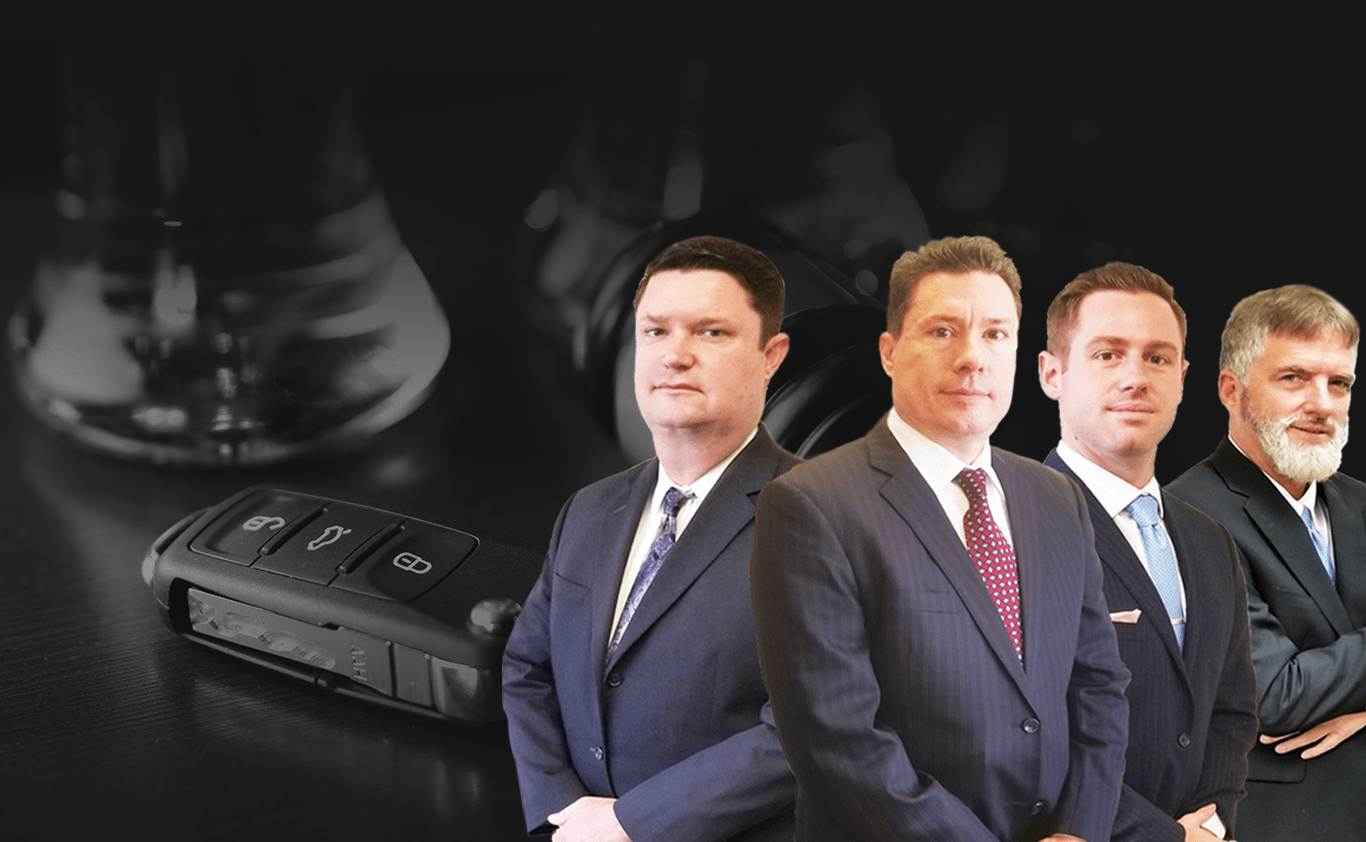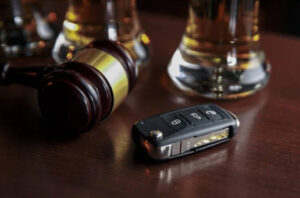Aggressive DUI Defense
No matter how complex the prosecutor’s allegations against you, you can count on our exemplary DUI defense. Our attor…




Facing DUI charges can affect your life in many ways, especially when you do not know what to expect. You might have thought DUI charges only affect others, such as inexperienced or reckless drivers. Maybe you thought that DUI was something that you would never have to deal with, yet you suddenly find yourself in police custody for driving while intoxicated. A DUI conviction carries many repercussions, including losing your driver’s license or having to install an ignition interlock device in your vehicle. These repercussions can pose a lot of hardships in your everyday life. The good news is that facing DUI charges does not mean…
California law prohibits anyone from operating a vehicle while under the influence of alcohol, drugs, or the combined influence of both alcohol and drugs. Any substance, whether legal or illegal, that can impair your driving abilities can lead to DUI charges. Under California law, the term vehicle is broad and can include scooters, bicycles, and watercraft. For a DUI arrest to occur, it should be evident that you operated a vehicle. If you were just sleeping on the back seat of a vehicle, you could avoid a DUI
What makes the San Diego DUI Attorney stand out among many DUI attorneys in San Diego? Here are some of the reasons that make us the go-to DUI attorneys in San Diego:

No matter how complex the prosecutor’s allegations against you, you can count on our exemplary DUI defense. Our attor…

We understand that every client is unique and so is every case. Therefore, we do not adopt a one-size-fits-all approa…

One thing everyone wants from a DUI attorney is for them to deliver a favorable outcome for your case. A positive res…

All our attorneys have one thing in common: an exclusive focus on DUI. Unlike some attorneys who handle different pra…
We handle a wide range of cases at the San Diego DUI Attorney. Our practice areas include the following:
Driving under the influence can only be charged as a misdemeanor under California if the following conditions are met:
California VC 23152 makes it an offense to operate a vehicle:
The law considers you to be under the influence if:
The potential penalties that you could face for a misdemeanor DUI conviction include the following:
You can face aggravated penalties for a misdemeanor DUI offense if:
Depending on your case, our attorneys at the San Diego DUI Attorney can help you raise several defenses against charges. Some of the potential defenses that we can employ include the following:
Driving while under the influence can be a felony under the following circumstances:
Under California law, DUI is a priorable offense, meaning that every subsequent offense you commit will have more severe penalties than the previous offense. If you have committed three DUI or wet reckless offenses in the last three years, the prosecutor will treat the subsequent offense as a felony. The potential penalties you could face for a fourth DUI offense include imprisonment of 16 months, 2 years, or 3 years. You can also face fines of up to $10,000. A 4th DUI offense is a wobbler, meaning the prosecutor can treat it as a misdemeanor. Our attorneys will strive to have your 4th DUI case charged as a misdemeanor instead of a felony.
If you have a previous felony DUI conviction, all subsequent offenses will be treated as felonies. You will face felony charges even if the subsequent offenses have no aggravating factors.
If the police suspect that you injured someone when driving under the influence, you will face charges under California Vehicle Code 23153(a) and 23153(b). California VC 23153(a) makes it a crime to drive while intoxicated and cause an injury to someone else. California VC 23153(b) makes it a crime to operate a vehicle with a BAC of 0.08% or more and cause injury to someone else. DUI causing injury can lead to 16 months, 2 years, or 3 years imprisonment. The sentence period will depend on:
Like a 4th DUI offense, a DUI causing injury is a ‘wobbler’ offense, meaning it can be charged as either a misdemeanor or felony based on the case specifics, chargeable as a misdemeanor or felony. We will do everything possible to ensure the offense is charged as a misdemeanor.
When you cause death while engaging in drunk driving in California, you can face vehicular manslaughter charges. You could face charges under PC 191.5(b) if you did not act with extreme recklessness. You can face charges under this statute if you drive while intoxicated and engage in another negligent act that leads to the death of another person. A conviction for this offense is a felony punishable by up to four years. If you face charges under this statute, our attorneys can help you fight against your charges. With the help of an attorney, you can assert that you are not guilty of DUI by proving that you did not drive while intoxicated. You can also point out that even if you drive while intoxicated, you did not act negligently. An attorney can also help you prove that your drunk driving did not cause the victim’s death.
If you drive under the influence, act with gross negligence, and cause a fatal accident, you can face charges under California PC 191.5(a). This statute outlines gross vehicular manslaughter while intoxicated. A conviction of this crime is a felony punishable by an imprisonment of four, six, or ten years.
The prosecutor must prove several elements for you to face charges under PC 191.5(a):
If convicted of this offense, the DMV can suspend your driver’s license for up to three years. If you operate a vehicle on a revoked license, you will face additional charges for driving on a suspended license under California VC 14601.
Our attorneys at the San Diego DUI Attorney can help you raise the following defenses against your charges:
Under California VC 23136, it is a civil offense for a driver below the age of 21 years to operate a vehicle with a blood alcohol concentration of 0.01% or more. This statute outlines California’s zero-tolerance laws for juvenile drivers. Underage DUI charges can result from consuming any beverage that contains alcohol, including mouthwash, and not just alcoholic drinks. Even certain medications that contain alcohol can lead to underage DUI charges. The charges can apply even if the driver’s abilities were not impaired by alcohol. Having a measurable alcohol content in the blood is enough to lead to underage DUI charges.
A violation of underage DUI laws under VC 23136 is considered a civil offense, not a criminal one. The punishment for violating this statute is a mandatory suspension of your driver’s license. A first offense attracts a one-year license suspension. Drivers with a history of violating the California drunk driving laws can have their licenses revoked for two to three years, but this depends on the severity of prior offenses.
For underage drivers, the police administer a preliminary alcohol screening (PAS) test. This roadside test is performed on a breathalyzer or similar equipment that measures the alcohol in a driver’s breath.
Underage drivers can also face charges under VC 23140 for driving with a BAC of 0.05% or higher. A post-arrest DUI chemical test follows an arrest for a violation of this statute. The post-arrest test can be a breath test performed at the police station or a DUI blood test. Violating California VC 23140 is a low-level crime that will not result in jail time. The potential penalties include a license suspension for up to one year for a first offense. A first offense can also attract a fine of up to $100. Drivers above 18 years could be subject to a compulsory alcohol education program for three months or more.
Our attorneys at the San Diego DUI Attorney are experienced in defending against underage DUI charges. Some of the legal defenses you can present with the help of an attorney include the following:
You should book a DMV hearing within ten days of your DUI arrest to avoid an automatic license suspension by the California Department of Motor Vehicles. At the hearing, a DMV officer will evaluate the evidence of your DUI case to determine whether to suspend your driver’s license. This hearing is independent of the court trial. You have a right to be represented by an attorney at the DMV hearing.
This hearing does not occur in a courtroom but at the local DMV office, and sometimes the hearing occurs over the phone. A DMV employee, not a judge, conducts the hearing.
Under California law, you can qualify for an expungement of your criminal conviction if you have completed probation. In drunk driving cases, completing probation can involve the following:
You can also qualify for an expungement of your
Miranda rights are warnings that the police must read to you before interrogating you while in custody. These rights emerged from the Fifth Amendment to the U.S. Constitution and prevent you from self-incrimination. Miranda rights apply to all criminal offenses, including DUI. The police do not have to use specific wording when reading to you the Miranda warning. The police can use any words, provided your rights are stated clearly. A Miranda warning in a DUI case should include the following information:
After reading your Miranda rights, the police can request whether you would like to waive your rights and respond to their questions. You do not have to give up your rights. Even if you had already started talking to the police, you can still invoke your Miranda rights and insist that your attorney be present during the questioning.
The San Diego DUI Attorney brings a rare advantage to your DUI cases: years of experience in handling DUI cases. We deeply understand how DUI cases are prosecuted, how police reports are written, and how DUI and sobriety tests are conducted. We use this insight to defend people like you, turning our knowledge and experience into powerful legal defense strategies. Here are some of the reasons why you should choose us:

No two DUI cases are the same. Maybe the police stopped you without probable cause. Perhaps the officer who administe…

We have handled numerous DUI cases across San Diego and understand how local judges and prosecutors work. This means …

At the San Diego DUI Attorney, we do not just focus on getting you through the legal process, but also on protecting …

Society has a stigma towards DUI charges, and you could be subjected to embarrassment and humiliation following a DUI…

I highly recommend San Diego DUI Attorney. They did a great job. They clearly answered all my questions and kept me informed of developments as my DUI case progressed, and quickly responded to all my questions. I highly recommend his firm to anyone in need.
Ron L.
San Diego, CA
30 years of experience matters when it comes to criminal cases. I highly recommend the San Diego DUI Attorney for your criminal and DUI matters. Vincent’s experience and tenacity in the courtroom is the advantage you want on your side.
Negin Yamini
Los Angeles Criminal Attorney
One of the best criminal attorneys in San Diego. If you are looking for an aggressive and experienced DUI attorney in San Diego then you go with this DUI law firm. I recommend them to anyone who is in DUI trouble in San Diego.
Richard L. Poland
Law Office of Richard L. Poland
If you face DUI charges, the sooner you contact us, the sooner we can start building your legal defense to protect your driver’s license, challenge the charges against you, and pursue the best possible result. When you face DUI charges, having a strong team in your corner makes all the difference. At the San Diego DUI Attorney, we have skilled attorneys experienced in handling all types of DUI offenses. We take pride in being the go-to DUI attorneys. Despite offering high-quality legal representation, we do not overcharge for our services. Contact us today at 619-535-7150 for a confidential, no-obligation consultation with one of our attorneys. We will help you fight against your charges and seek the best possible outcome.

The Value of Our Seasoned Legal Team
Employing a proven defense lawyer can positively affect your case outcome. Here is what to expect from our attorneys:
The section below discusses some of the services our aggressive legal team offers.

Your attorney’s investigations are the cornerstone of your defense approach. While the prosecution team investigates cases to ascertain guilt, the essence of our investigation lies in unearthing proof that bolsters your claim of innocence and works towards lowering the severity of your DUI charges.
Our investigation process entails the following:
Our team aims to refute the prosecutor’s claims against you by conducting comprehensive investigations and identifying inconsistencies and biased testimonies within the state evidence against you. The scrutiny also allows us to devise a defense strategy to address your DUI’s case nuances.

Numerous subtle factors change how law enforcement officials and the prosecution handle your case. A defense counsel handling DUI criminal charges daily is ideal for understanding how these factors can affect your case outcome. You also need a lawyer who understands the unwritten and written rules. If this cautious case assessment and what works for you are not done, you risk being pushed through the California judicial process conveniently for the prosecutor. You need an attorney with your best interests at heart and who prioritizes you.
San Diego DUI Attorney will work closely with you, our well-esteemed client, to understand the story behind your criminal charges, find solutions, and aggressively represent you. We will fight the prosecutor diligently, bring motions to dismiss proof, and represent you in court.
We are committed to understanding your legal goals and fighting to achieve them until you are content with the outcome. If you have an underlying issue that resulted in drunk driving, we will work towards a resolution. We can request that the court grant you any of the following options:

Our legal team recognizes that every DUI criminal case is unique and offers individualized attention. We integrate the dedication to round-the-clock availability with our individualized approach to all cases. Once you contact our office at 619-535-7150, we will assign you a skilled attorney who will listen to your concerns, answer your questions, and offer thoughtful insights, assisting you in making informed decisions.
No criminal case is too small or too large. We defend a client at a time. Our trained legal team will dedicate quality time to understanding your case and offer you skilled representation throughout the criminal judicial process.
We do not see you as another case number. We value your concerns and are dedicated to standing by your side throughout the process.
We will develop a legal defense strategy that suits your legal goals, interests, and needs. Our proven lawyers will also explain the legal process, your DUI criminal charges, potential penalties, and how to fight your criminal charges.
We recognize how frustrating it can be to wait for your case updates. That is why we offer responsive and fast communications without waiting hours or days for clarifications or answers. We want to be confident that we are handling your case promptly.
Since we limit our practice to driving under the influence defense, we devote all resources to helping you, our client, whose legal rights and future are on the line. We pool our prowess, resources, and experience to offer you top-notch representation and dedicated focus.